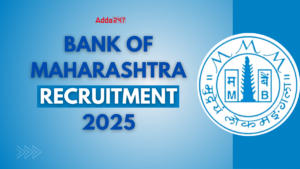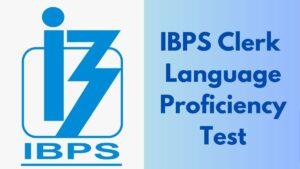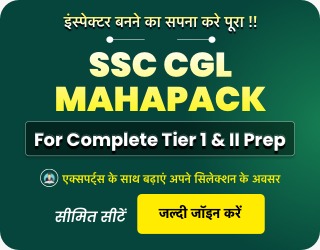Table of Contents
The Banking Exam Preparation in 2024 can be challenging because these exams are very competitive and cover different subjects like reasoning, math, English, and general knowledge. With many people applying for a limited number of jobs, having a clear plan is important. This guide will help you learn how to get ready for banking exams, including understanding the exam pattern, focusing on key topics, practising often, and keeping up with current events. By following these steps, you can improve your chances of getting a job in the banking sector. Read this article for more details.
How to Prepare for Banking Exam in 2024?
Banking exam is a major employment sector in India, known for offering competitive salaries along with job security and stability. The Institute of Banking Personnel Selection (IBPS) conducts a common exam annually to hire candidates for multiple roles. Similarly, the State Bank of India (SBI) and the Reserve Bank of India (RBI) regularly organize their exams for various positions. Additionally, many private sector banks use IBPS scores for their recruitment processes as well.
Recruitment of Banking Exams in 2024
Each year, various agencies like RBI, SBI, IBPS, PSBs, and LIC conduct bank exams to fill vacancies in public sector banks for positions such as Clerks, Probationary Officers (PO)/Management Trainees (MT), Specialist Officers (SO), and Regional Rural Bank (RRB) PO/Clerk. Check the following-
- Institute of Banking Personnel Selection (IBPS): Administers exams for IBPS PO, IBPS Clerk, IBPS RRB PO/Clerk, and IBPS SO.
- Reserve Bank of India (RBI): Organizes the RBI Grade B and RBI Assistant recruitment exams.
- Life Insurance Corporation of India (LIC): Conducts recruitment exams for LIC AAO, LIC ADO, and LIC Assistant.
- State Bank of India (SBI): Conducts exams for SBI Clerk, SBI PO, and SBI SO.
Selection Proces for SBI Clerk/IBPS PO/IBPS Clerk/IBPS RRB/RBI/LIC
When preparing for banking exams, it’s important to know that there are three main stages to getting a job in banking. Understanding these stages is key. Bank exams usually have either a two-step or three-step selection process, which includes:
- Prelims Exam
- Mains Exam
- Interview
Educational Qualification Required for Bank Exams 2024
Candidates must possess a graduation degree from a recognized state or central university, along with proficiency in reading, writing, and speaking English, and operational knowledge of computer systems.
Exam Pattern for Banking Exam
Before you start preparing for banking exams, it’s important to understand the exam patterns and syllabi. These exams usually have three stages: Preliminary, Mains, and Interview. The Preliminary and Mains exams are computer-based and include multiple-choice questions. For clerical positions, there is no interview stage. If you have any questions or doubts, don’t worry—we’re here to help you with your preparation. Check out the table below for details on the prelims and mains exam patterns.
Prelims Exam Pattern for SBI/IBPS/RBI Exams
The Prelims Exam Pattern for SBI/IBPS/RBI Exams typically consists of three sections: English Language, Quantitative Aptitude, and Reasoning Ability. Each section is further divided into subsections with varying question types. Candidates can check the table below for more information.
| Contents | Prelims Exam Pattern RBI Assistant, SBI PO/Clerk, IBPS PO/Clerk |
IBPS RRB Prelims Exam Pattern
Office Assistant/Officer Scale I, II, III |
| Format | Multiple Choice Questions |
Multiple Choice Questions
|
| Mode of Exam | Online | Online |
| Language | Bilingual- Hindi & English |
Bilingual- Hindi & English
|
| Duration | 60 Minutes (Sectional/Overall) |
45 Minutes (Overall)
|
| Subjects | English Language Numerical Ability/Quantitative Aptitude Reasoning Ability |
Numerical Ability
Reasoning Ability |
| Negative Marking | 1/4th Marks | 1/4th Marks |
| No. of Questions | 100 | 80 |
| Total Marks | 100 | 80 |
Mains Exam Pattern for RBI/SBI/IBPS Exam
After successfully clearing the Preliminary exam, candidates must sit for the Main examination, which includes four sections: Reasoning Ability and Computer Aptitude, Quantitative Aptitude, English Language, and General Awareness. Besides these computer-based tests, candidates are required to take a descriptive paper that includes Letter and Essay Writing in English.
| Contents | Mains Exam Pattern IBPS Clerk, RBI Assistant, SBI Clerk |
IBPS RRB Mains Exam Pattern
|
| Format | Multiple Choice Questions |
Multiple Choice Questions
|
| Mode of Exam | Online | Online |
| Language | Bilingual- Hindi & English |
Bilingual- Hindi & English
|
| Time Duration | 2 Hours 40 Minutes (Approx.) | 2 Hours |
| Subjects | General/Financial Awareness General English Quantitative Aptitude Reasoning Ability & Computer Aptitude |
General Awareness
English/Hindi Language Numerical Ability Reasoning Ability Computer Knowledge |
| Negative Marking | 1/4th Marks | 1/4th Marks |
| Total Questions | 190/200 | 200 |
| Maximum Marks | 200 | 200 |
Banking Exam Preparation Tips
Candidates preparing for the bank exam must learn some key tips. Check the following Banking Preparation Tips below:
- Understand the Syllabus: Study the syllabus thoroughly and aim to grasp as many concepts as you can.
- Make a Plan: Effective preparation requires a well-organized plan. Develop a daily schedule that allocates time to each subject area.
- Practice Past Papers: Solve previous years’ exam papers to familiarize yourself with the exam pattern and question types.
- Focus on Reasoning: The reasoning section is crucial in banking exams. Make it a habit to practice 4-5 sets of reasoning questions daily.
- Understand, Don’t Memorize: Focus on understanding concepts rather than rote memorization, though some information-heavy topics will require memorization.
- Master Quantitative Aptitude: This section includes questions up to the 12th-grade level. Learning shortcut methods can help you score quickly and efficiently.
- Enhance Your Vocabulary: To excel in the English section, build a strong vocabulary. Regularly read national newspapers, jot down unfamiliar words, and review their meanings. Revisit your vocabulary notes frequently.
- Stay Updated: Be aware of current affairs, especially regarding economics, financial regulations, social development, banking rules, and major sports and news events both within and outside India.
- Know Basic Computer Skills: Basic computer knowledge, including familiarity with various software and hardware, and proficiency in Microsoft Office and shortcut keys, will boost your score.
- Work on Weak Areas: Pay special attention to topics where you need improvement.
- Take Mock Tests: Regular mock tests are vital for developing effective time management skills in the exam hall.
- Avoid Last-Minute Cramming: Just before the exam, focus only on revising what you have already studied instead of trying to learn new material.
- Practice Descriptive Writing: For the Mains exam, practice writing long answers while considering time constraints to improve your descriptive writing skills.
- Prepare for the Interview: Approach the interview with confidence and thorough preparation in all relevant areas mentioned.
- Stay Positive: Maintain a positive outlook, and combine hard work, dedication, and determination to move closer to your goal of success.



 PNB SO Exam Date 2025, Syllabus, Prepara...
PNB SO Exam Date 2025, Syllabus, Prepara...
 Bank of Maharashtra SO Recruitment 2025 ...
Bank of Maharashtra SO Recruitment 2025 ...
 IBPS Clerk Language Proficiency Test 202...
IBPS Clerk Language Proficiency Test 202...




